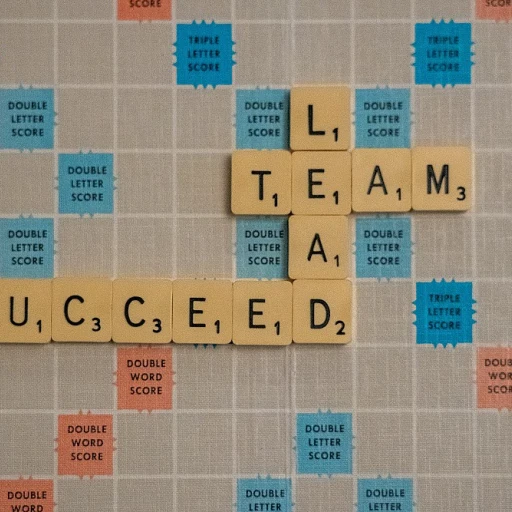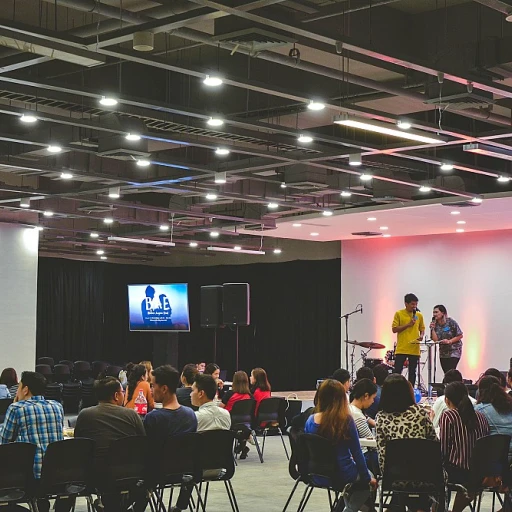
Understanding the importance of good judgement in HR
Why Good Judgment Matters in HR Interviews
Good judgment is a cornerstone of effective human resources management. In recruitment, the ability to make sound decisions impacts not just the immediate hiring outcome, but also the long term success of the team and organization. When HR professionals or AI-powered systems assess candidates, they look for evidence of strong decision making skills, problem solving ability, and the capacity to handle situations where the right answer is not always obvious.
During an interview, candidates are often asked to describe a time when they had to make a difficult decision or resolve a challenging situation. These questions help reveal how someone approaches the decision making process, weighs potential outcomes, and ensures decisions are fair and effective. For example, a common interview question might be: "Describe a situation where you had to make a quick decision with limited information. What was your process?" The answer provides insight into the candidate's judgment and ability to work under pressure.
The Impact of Judgment on Team and Project Success
Good judgment is not just about individual choices. It affects how team members collaborate, how projects are managed, and how problems are solved collectively. A candidate's ability to demonstrate good judgment in interview questions signals their potential to contribute positively to the team and handle complex, real world situations.
- Decision making: How does the candidate approach making decisions that affect others?
- Problem solving: Can they describe a situation where their judgment led to a successful outcome?
- Team impact: Do their decisions support team goals and long term project success?
As AI becomes more integrated into HR processes, understanding how to assess good judgment—both through technology and human insight—remains essential. For more on how AI is enhancing talent evaluation in human resources, visit enhancing talent with AI in human resources.
How AI evaluates judgement in recruitment processes
How AI Detects Judgment in Candidate Responses
Artificial intelligence has become a key player in evaluating good judgment during HR interviews. Instead of relying solely on human intuition, AI systems analyze candidate answers to interview questions, focusing on how individuals approach decision making, problem solving, and team dynamics. These systems are trained to look for patterns that indicate strong judgement skills, such as the ability to describe a situation clearly, explain the decision making process, and reflect on the long term impact of their choices.
Key Elements AI Looks For
- Clarity in Describing Situations: AI evaluates how well a candidate can describe a time when they faced a challenging situation at work. Clear, structured storytelling often signals good judgment and strong communication skills.
- Decision Making Process: The system examines how candidates explain their process for making decisions. This includes the steps taken, factors considered, and how they involved team members or stakeholders.
- Problem Solving Approach: AI looks for examples where the candidate demonstrates their ability to handle situations under pressure, showing both analytical and interpersonal skills.
- Reflection on Outcomes: Good judgment is often revealed when candidates discuss the results of their decisions and what they learned from the experience.
How AI-Powered Interviews Work
During an AI-powered interview, candidates may be asked judgement interview questions such as, "Describe a situation where you had to make a difficult decision for your team," or "Give an example of a time you had to solve a problem with limited information." The AI analyzes the candidate's answer, looking for evidence of good judgment, such as weighing potential risks, considering the impact on team members, and ensuring decisions align with company values.
AI systems use natural language processing to evaluate not just what is said, but how it is said. They assess the structure of the response, the relevance of the example answer, and the depth of the candidate's reflection. This process helps HR teams identify candidates with strong decision making skills and the ability to handle complex work situations.
For a deeper understanding of how AI interprets candidate roles and responses in these interviews, you can explore the role of a job applicant in AI-powered HR.
Common demonstrate good judgement interview questions
Key Interview Questions That Reveal Judgment Skills
Recruiters and AI-powered HR systems often use targeted interview questions to assess a candidate’s ability to make sound decisions. These questions are designed to uncover how someone approaches problem solving, evaluates options, and considers the impact of their choices on the team and organization. The goal is to understand both the process and the outcome of the candidate’s decision making.- Describe a time you had to make a difficult decision at work. This question explores the candidate’s ability to weigh options, consider long term effects, and ensure decisions align with company values. An example answer might detail how the candidate handled a project setback, consulted with team members, and chose a solution that balanced short-term needs with long-term goals.
- Can you give an example of a situation where you had to solve a problem with limited information? Here, the interviewer is looking for evidence of good judgment under pressure. The answer should show the candidate’s process for gathering facts, consulting with others, and making a timely decision despite uncertainty.
- Tell us about a time you disagreed with a team member’s approach. How did you handle it? This question assesses interpersonal skills and the ability to make decisions that respect different perspectives. A strong answer will highlight how the candidate listened, communicated, and worked toward a solution that benefited the team.
- Describe a situation where your decision had a significant impact on a project or team. This helps interviewers evaluate the candidate’s awareness of the potential consequences of their actions and their responsibility in the decision making process.
What AI Looks For in Judgment Interview Answers
AI-driven HR tools analyze responses to these questions for specific indicators of good judgment. They look for:- Clear explanation of the situation and the candidate’s role
- Logical reasoning behind the decision making process
- Consideration of both immediate and long term impacts
- Evidence of collaboration with team members
- Ability to reflect on outcomes and learn from experience
Tips for Candidates: Structuring Your Answers
When preparing for judgment interview questions, consider the following approach:- Briefly describe the situation and your role
- Explain the problem or decision you faced
- Detail the steps you took to analyze the situation
- Highlight how you involved team members or stakeholders
- Share the outcome and what you learned
Tips for answering judgement-based interview questions
Strategies for Responding to Judgement-Based Interview Questions
When facing judgement interview questions, your goal is to show your decision making skills and your ability to handle situations thoughtfully. AI-powered HR interviews often look for structured, logical answers that reveal your process for making decisions and solving problems. Here are some practical tips to help you answer these questions effectively:- Use the STAR method: Structure your answer by describing the Situation, Task, Action, and Result. This helps you clearly explain your decision making process and the outcome of your choices.
- Highlight real examples: Interviewers and AI systems both value specific examples. Describe a time you faced a challenging decision at work. Explain the factors you considered, the options you weighed, and how you ensured your decision was good for the team and the project.
- Show your problem solving approach: Walk through how you analyze a problem, gather input from team members, and evaluate potential solutions. This demonstrates your judgement and ability to make informed decisions.
- Balance short-term and long-term impacts: Good judgement means thinking beyond immediate results. Discuss how your decisions considered both short-term needs and long-term goals for the team or organization.
- Be honest about mistakes: If you are asked about a time you made a poor decision, focus on what you learned and how you improved your judgement skills for future situations.
Sample Questions and Example Answers
Here are some common judgement interview questions you might encounter, along with guidance on how to approach your answers:| Interview Question | What AI Looks For | Example Answer Approach |
|---|---|---|
| Describe a situation where you had to make a difficult decision with limited information. | Ability to assess risks, logical process, confidence in decision making. | Explain the context, the options you considered, how you involved team members, and the reasoning behind your final decision. |
| Tell us about a time you had to resolve a conflict within your team. | Problem solving, communication skills, fairness, and empathy. | Describe the conflict, your approach to understanding both sides, and how you ensured decisions benefited the team as a whole. |
| Give an example of a time when your judgement was challenged. How did you respond? | Openness to feedback, adaptability, and willingness to reconsider decisions. | Share how you listened to concerns, evaluated new information, and adjusted your decision making process if needed. |
AI-driven simulations and scenario-based assessments
Realistic Scenarios: How AI Puts Judgment to the Test
AI-driven simulations and scenario-based assessments are changing how organizations evaluate a candidate's decision making skills. Instead of relying solely on traditional interview questions, these tools immerse candidates in realistic work situations. The goal is to observe how they make decisions, solve problems, and demonstrate good judgment under pressure. AI-powered platforms can present candidates with:- Time-sensitive project dilemmas that require quick, thoughtful decisions
- Team conflicts where the candidate must balance different perspectives
- Complex situations involving multiple stakeholders and long term impacts
What AI Looks For in Scenario-Based Assessments
The technology evaluates several factors:- How clearly the candidate describes the situation and their role
- The steps taken to gather information and consider potential outcomes
- How the candidate involves team members in the decision making process
- Evidence of problem solving and good judgment in their example answer
- Ability to reflect on the decision and its long term effects
Balancing AI insights with human intuition in HR
Integrating AI Insights with Human Experience
AI-powered HR tools have transformed the way organizations assess good judgment in candidates. These systems analyze responses to judgement interview questions, evaluate decision making skills, and even simulate real-world situations. However, while AI can process large volumes of data and identify patterns in how candidates answer interview questions, it is essential to combine these insights with human intuition and experience.
Why Human Oversight Matters
AI excels at consistency and speed, but it may not fully grasp the context behind a candidate's decision making process. For example, when a candidate describes a time they had to make a difficult decision for their team, AI can score the response based on keywords and structure. Yet, a human interviewer can pick up on subtle cues, such as tone or body language, that reveal the candidate's true ability to handle situations under pressure.
- Contextual Understanding: Human interviewers can ask follow-up questions to clarify a candidate's example answer, ensuring decisions are understood in context.
- Ethical Considerations: Some judgement interview questions require an understanding of company culture or long term project goals, which AI may not fully appreciate.
- Team Dynamics: Assessing how a candidate works with team members or navigates a complex situation often requires human insight.
Best Practices for a Balanced Assessment
To ensure decisions are fair and comprehensive, HR professionals should use AI as a support tool rather than a replacement. Here are some ways to achieve this balance:
- Review AI-generated questions answers alongside human notes from the interview.
- Use AI-driven simulations to identify potential problem solving skills, then discuss these findings with the candidate in a follow-up interview.
- Encourage interviewers to describe a situation where AI insights helped or conflicted with their own judgement, and document the decision making process.
- Regularly update AI models with feedback from human interviewers to improve their ability to evaluate good judgment and decision making skills.
Ultimately, combining AI's analytical power with human expertise leads to a more robust and fair recruitment process. This approach helps organizations identify candidates with strong judgement, effective problem solving abilities, and the potential to thrive in both individual and team settings.












